On April 3…
“We’ve got some difficult days ahead. But it really doesn’t matter with me now, because I’ve been to the mountaintop. And I don’t mind. Like anybody, I would like to live a long life; longevity has its place. But I’m not concerned about that now. I just want to do God’s will. And He’s allowed me to go up to the mountain. And I’ve looked over. And I’ve seen the Promised Land. I may not get there with you. But I want you to know tonight, that we, as a people, will get to the Promised Land. So I’m happy, tonight. I’m not worried about anything. I’m not fearing any man.”
~Martin Luther King, Jr.
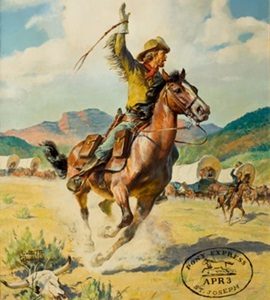
1860 – On this date, the first Pony Express mail, traveling by horse and rider relay teams, simultaneously left St. Joseph, Missouri, and Sacramento, California.
Ten days later, on April 13, the westbound rider and mail packet completed the approximately 1,800-mile journey and arrived in Sacramento, beating the eastbound packet’s arrival in St. Joseph by two days and setting a new standard for speedy mail delivery.
Although ultimately short-lived and unprofitable, the Pony Express captivated America’s imagination and helped win federal aid for a more economical overland postal system.
It also contributed to the economy of the towns on its route and served the mail-service needs of the American West in the days before the telegraph or an efficient transcontinental railroad.

1865 – The Rebel capital of Richmond, Virginia, fell to the Union, the most significant sign that the Confederacy was nearing its final days.
For ten months, General Ulysses S. Grant had tried unsuccessfully to infiltrate the city. After Lee made a desperate attack against Fort Stedman along the Union line on March 25, Grant prepared for a major offensive. He struck at Five Forks on April 1, crushing the end of Lee’s line southwest of Petersburg.
On April 2, the Yankees struck all along the Petersburg line, and the Confederates collapsed. During the evening, Confederate forces abandoned the city, allowing the Union troops to march in unopposed the following morning.
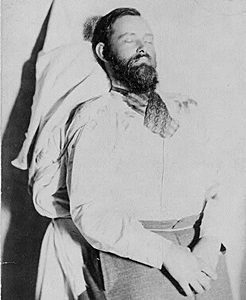
1882 – Jesse James, one of America’s most famous criminals, was shot to death by fellow gang member Bob Ford, who betrayed James for reward money.
For 16 years, Jesse and his brother, Frank, had committed robberies and murders throughout the Midwest. Detective magazines and pulp novels glamorized the James gang, turning them into mythical Robin Hoods who were driven to crime by unethical landowners and bankers.
In reality, Jesse James was a ruthless killer who stole only for himself.
After spending a few quiet years farming – following the botched Northfield, MN robbery – Jesse organized a new gang. Charlie and Robert Ford were on the fringe of the new gang. While Jesse’s mother made breakfast, the new gang met to hear Jesse’s plan for the next robbery.
When Jesse turned his back to adjust a picture on the wall, Bob Ford shot him several times in the back.
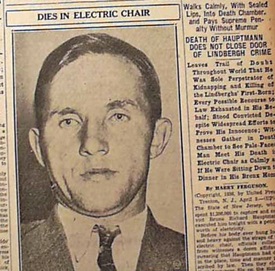
1936 – Richard Bruno Hauptmann, convicted in the 1932 kidnapping and murder of the 20-month-old son of Charles A. Lindbergh, was executed by electrocution at New Jersey State Prison.
In the years following the kidnapping, a number of people began to question Hauptmann’s guilt and the quality of the criminal investigation; however, much of this criticism was likely motivated by opposition to Lindbergh following the public revelations of his Nazi sympathies.
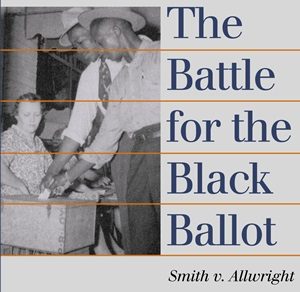
1944 – The U.S. Supreme Court handed down its ruling in the matter of Smith v Allwright.
Lonnie E. Smith, a black dentist from Houston, had sued county election official S. S. Allwright for the right to vote in a Texas primary election being conducted by the Democratic Party. He challenged the 1923 state law that authorized the party to establish its internal rules which required all voters in its primary to be white.
Texas claimed that the Democratic Party was a private organization that could set its own rules of membership. Smith argued that the state by its law had delegated some of its authority to regulate elections to the Democratic Party, which essentially disenfranchised him by denying him the ability to vote in what was the only meaningful election in his jurisdiction.
The Court agreed that the restricted primary denied Smith his equal protection under the law (according to the Fourteenth Amendment) and found in his favor. It said that by delegating its authority to the Democratic Party to regulate its primaries, the state of Texas was allowing discrimination to be practiced, which was unconstitutional.
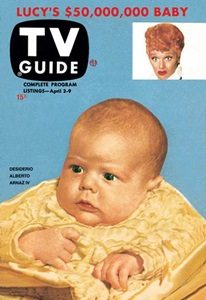
1953 – The first issue of TV Guide was published. The cover featured the new born baby of actors Desi Arnaz and Lucille Ball.
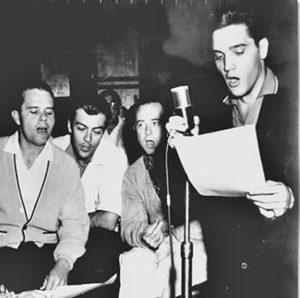
1960 – Elvis Presley recorded It’s Now Or Never at RCA studios in Nashville, Tennessee.
The tune for the song was based on the Italian song O Sole mio with new lyrics written by Aaron Schroeder and Wally Gold, which they wrote in 30 minutes.
The song would become the biggest selling single of Presley’s career.
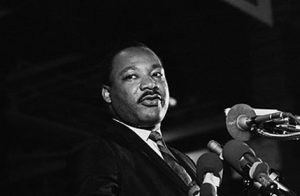
1968 – Martin Luther King, Jr. delivered his “I’ve Been to the Mountaintop” speech at the Mason Temple (Church of God in Christ Headquarters) in Memphis, Tennessee. He was assassinated the next day.
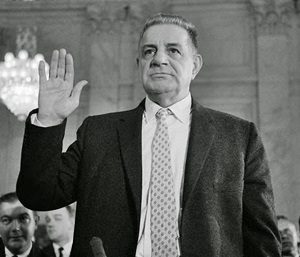
1971 – Joseph Valachi died of a heart attack at the Federal Correctional Institution, La Tuna, in Anthony, Texas. He was 66.
He was the first member of the Italian-American Mafia to acknowledge its existence publicly when he testified before the Permanent Subcommittee on Investigations of the U.S. Senate Committee on Government Operations in 1963.
Although Valachi’s testimony – which was broadcast on radio and television – never led directly to the prosecution of any Mafia leaders, he provided many details of history of the Mafia, operations and rituals; aided in the solution of several unsolved murders; and named many members and the major crime families.
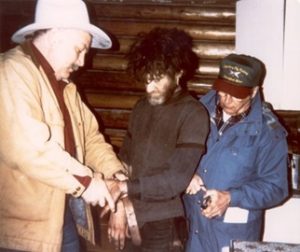
1996 – At a small wilderness cabin near Lincoln, Montana, Theodore John Kaczynski was arrested by FBI agents and accused of being the Unabomber, the elusive terrorist blamed for 16 mail bombs that killed three people and injured 23 during an 18-year period.
On January 22, 1998, Kaczynski pleaded guilty on all counts and was spared the death penalty. He showed no remorse for his crimes and five months later, he was sentenced to four life sentences plus 30 years.
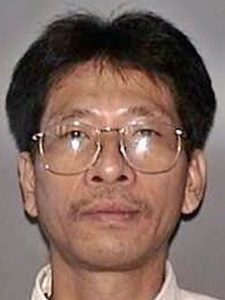
2009 – Jiverly Antares Wong, a 41-year-old naturalized American citizen from Vietnam, opened fire at the American Civic Association immigration center in Binghamton, NY, killing 13 people (and wounding 4 more) before taking his own life.
Wong had been taking English classes at the center but dropped out because he felt “degraded and disrespected” for his poor English language skills and had difficulty in finding work.
After shooting two receptionists, Wong – armed with a 9mm Beretta and a .45-caliber Beretta – walked into his old classroom and opened fire. He killed or wounded everyone in the room before committing suicide.
Compiled by Ray Lemire ©2019 RayLemire.com / Streamingoldies.com. All Rights Reserved.
